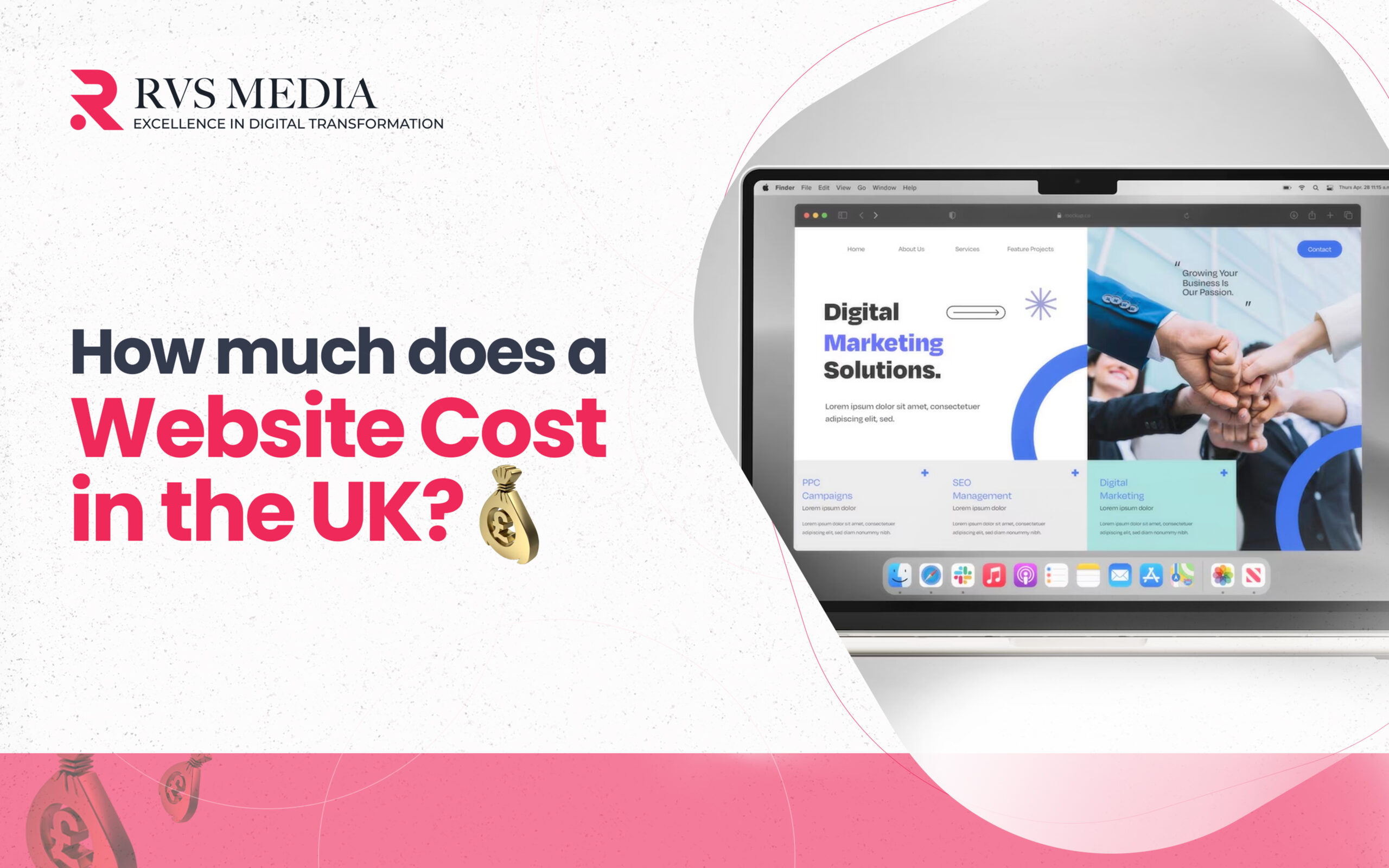Digital Transformation in the Retail Industry

The retail industry is undergoing a paradigm shift in the modern digital world, which is probably something we are all aware of. This is greatly contributed by digital transformation which has become not only a survival mechanism but also a growth strategy for players in the retail industry. However, digital technology has been a key contributor, supporting the retail sector’s shift to omnichannel retailing for the past few years. Due to the shifting behaviour patterns of customers, traditional retailers are all modifying their strategies to stay competitive with consumers’ shifting expectations. This blog post specifically discusses the impact of digital transformation on the retail industry in terms of its technology, strategy, and trends that contributed to this transformation.
The Ecommerce Industry
The Covid-19 pandemic has made ecommerce become one of the most significant components that make up digital transformation in retail field. It has increased online shopping that has made it essential for retailers to have strong ecommerce websites. Hence, retail enterprises are investing huge amounts of money into ecommerce to create an online shopping experience that can compete with or even be better than their physical stores
Key Components of Successful Ecommerce Platforms:
- Having a friendly user interface design in which there’s simple navigation and having quick checkout processes.
- The mobile-friendly website plays an important role in increasing the number of people shopping through Mobile devices.
- Secure payment gateways help build trust and protect customer data.
- Recommending personalized products to customers.
- Similarly, ecommerce websites can be integrated with inventory management systems that will enable retailers to receive updates regarding their stock in real-time.
you may find this useful – selecting a perfect ecommerce platform
Digital Transformation in B2B and D2C Ecommerce
Digital Transformation is Important for B2B business as well as B2C and D2C. But till now, Business-to-Consumer ecommerce has seen many advantages for most of such digital changes, but Business-to-Business and Direct-to-Consumer models catch up with it fast. For instance, B2B platforms have been making it simpler for businesses to buy goods, while D2C brands take advantage of digital means of reaching out to their clients without going through distribution channels.
Enhancing Customer Experience Using Technology
Selling goods online is one of many things that fall under digital transformation for Retail owners. It is creating an online environment that enhances every customer’s journey. Retailers can set themselves apart from the competition by delivering customized experiences through customized software solutions.
CRM Systems:
Retail businesses run many channels of interaction (before, during and after the sales cycle) with their customers, so they need to embrace an effective customer relationship management (CRM) system.

- Monitor customer preferences and buying habits.
- Enhance the personalization at every interaction.
- Use targeted marketing strategies to drive up sales.
- Provide better service and assistance by offering comprehensive insights about customers.
- Predict future buying behaviour and trends.
Implementing an Effective CRM Strategies
To get the maximum benefits from CRM software systems, retailers should focus on:
- Data integration: It involves merging various sources of customer data into one platform.
- Segmentation: This involves classifying clients according to their behaviour, preferences and worth.
- Personalization: This entails tailoring messages as well as promotions depending on each buyer’s needs.
- Automation: This entails making routine tasks easier to enhance productivity and reduce response time.
- Analytics: It involves employing knowledge gained from analyzing data in business decision-making.
There is many off-the-self CRM software available in the market. You can select any CRM software or create custom CRM software as per your unique business needs.
You may find this useful Impact of custom software development in Digital transformation
Mobile Apps
Smartphones are everywhere, and it is through them that mobile applications are increasingly becoming important in the retail market. A well-designed mobile app can:
- Provide a convenient shopping platform accessible at any time and from anywhere.
- Offer personalized deals and notifications that would depend on user behaviour and location.
- Enhance in-store experiences through augmented reality functionality, QR code scanning among others.
- Facilitate loyalty programs and customer engagement.
- Connect online and offline shopping journeys, hence providing seamless omnichannel experiences.
Case Study: Successful Retail Mobile App Implementation
The success of Marks & Spencer’s mobile application has led to increased customer interactions with their products and sales as well. The app offers features such as:
- Virtual try-on feature for clothing items
- In-store stock verification
- Individualized styling suggestions
- The integrated loyalty program
- Click-and-collect option
This comprehensive approach to mobile app development has helped M&S stay competitive in the digital age, demonstrating how powerful such technologies are when it comes to revolutionizing retailing.
The Role of Digital Marketing in Retail Transformation
Retailers are employing a variety of digital marketing techniques to reach and engage the ideal customers:
Search Engine Optimization (SEO): Improving visibility in search engine results pages to drive organic traffic. This applies to optimizing website content, structure and back-end components if a ranking is to be achieved for relevant keywords.
Pay-Per-Click (PPC) Campaigns: Targeted advertisements meant for potential customers at appropriate time periods. Online retailers are utilizing Google Ads and social media ads among other platforms to achieve traffic as well as conversions.
Content Marketing: Creating valuable information to keep customers engaged and create brand loyalty amongst them. It may involve, among other forms; blogs, videos, infographics and interactive contents that can educate or entertain their audiences.
Marketing Automation: Streamlining marketing efforts aimed at better productivity and personalization. Retail marketing is being transformed by way of automated email campaigns, for example chatbots or personalized product recommendations.
Social Media Marketing: Use various social platforms to build brand awareness, develop customer relationships and make sales. In an increasingly popular way retailers are using social commerce capabilities to sell directly via Instagram and Facebook.
Influencer Marketing: Partnering with social media influencers to reach new audiences and build trust. This strategy has proven particularly effective for fashion and beauty retailers targeting younger demographics.
Embracing Cloud Technology and System Integration
To support these digital initiatives, new retail stores are subscribing to cloud hosting and services. The advantages of cloud-based technology are:
- Handling peak shopping times such as Black Friday and holiday seasons through scalability.
- Securing customers’ information by adhering to strict EU data protection laws.
- Improving accessibility and collaboration for retail teams allowing remote work e.g. telecommuting while providing real-time updates
- Increased cost efficiency, minimizing the need for costly on-premises infrastructure
Moreover, System integration is another important factor in connecting various digital devices and platforms. Integrated systems facilitate a seamless information flow between different retail processes from inventory management to customer service point of view. This integration allows:
- Real-time inventory updates across all sales channels.
- An efficient order fulfilment system with delivery tracking capability .
- A comprehensive customer database.
- Consistent pricing and promotions across all platforms.
Emerging Technologies Shaping the Future of Retail
With the continued evolution of technology Several emerging technologies are set to further transform the retail landscape:
Artificial Intelligence and Machine Learning
AI and ML are revolutionizing various aspects of retail, including:
- Predictive analytics for inventory management.
- Chatbots for customer service.
- Personalized shopping experiences
- Dynamic pricing strategies.
Virtual and Augmented Reality
VR and AR technologies are enhancing the shopping experience by:
- Allowing customers to virtually try on clothes or visualize furniture in their homes.
- Creating immersive in-store experiences.
- Providing interactive product demonstrations.
Internet of Things (IoT)
Retail operations are being enhanced by the IoT gadgets in the following ways:
- Smart shelves that keep track of stock levels.
- Beacons that pass personalized offers to customers to nearby shoppers.
- Connected fitting rooms which improve the try-on experience.
Blockchain Technology
To make retail sector more effective, blockchain is expected to:
- Increase transparency in supply chains.
- Improve verification of product solidity.
- Enabling secure and efficient payment systems.
Overcoming Challenges in Retail Digital Transformation
Although the advantages of digital transformation are unmistakable, there are numerous challenges that retailers encounter during implementation:

Legacy Systems: Many retailers are still grappling with outdated IT systems, which are hard to integrate with modern digital solutions.
Data Security: You must keep your customers’ information safe if you want to avoid the increasing cyber threats.
Skills Gap: There is a shortage of digital talent within the retail sector making it hard to deploy and manage new technologies.
Customer Adoption: Some customers may resist adapting to new technologies requiring retailers to emphasize user education and support throughout.
ROI Justification: It can be hard to measure ROI for digital programs, especially when considering the short-term time frame.
For retailers to solve these issues, they need to:
- Create a clear digital modernization plan that fits with the company’s objectives.
- Invest in training and development of their employees.
- Collaborate with reliable technology suppliers as well as digital agencies.
- Put greater emphasis on managing change so that they can manage seamless integration of new devices.
- Give priority to data protection alongside adherence GDRP Laws.
Conclusion
Digital transformation is not just changing the front of retail – it’s redefining the whole shopping experience. Today’s digital consumers may demand these personalized, seamless journeys that meet their needs but can be achieved by embracing ecommerce, utilizing customer data, and adopting new technologies.
The future of business in retail is one for those who can effectively mix physical and digital worlds to provide unified commerce experiences that customers appreciate at all touchpoints. In this forever changing world of commerce, the retailers who are innovative and adapt to digital will be more likely to survive.
For retailers looking to embark on or accelerate their digital transformation journey, partnering with an experienced Digital transformation services Provider. We can provide the expertise and support needed to navigate this complex landscape successfully.
In order not only to stay ahead but also to increase wealth in this highly competitive economy where all retailers want to make an impact, retailers need to be constantly ahead of online trends and keep putting clients at the heart of their strategies. They may also establish new standards for purchasing experiences whilst fostering lasting customer loyalty to overcome the competition.
FAQ
How can retail operations be automated?
A: Automation can simplify various aspects of sales operations:
Point of Sale (POS) Systems: Use automated Point of Sale systems for fast and accurate transactions.
Inventory management: Implement systems that automatically update stock levels when products are sold.
Order fulfillment: Automate order fulfillment processes from order placement to shipping.
Marketing automation: Use marketing automation tools for email marketing, customer segmentation and personalized marketing campaigns.
What are the pillars of digital transformation in the retail industry?
Answer: Digital transformation in the retail industry is based on several key pillars. Here are some.
Customer-centric approach: You need to put customers at the center of your strategy to deliver personalized experiences and increase the results of the digital transformation of retail stores.
Data-driven insights: Use technology and data to make informed decisions, improve operations and predict growth trends for your retail business.
Technology Integration: Integrate digital tools and technologies seamlessly into your operations.
Agile operations: Be adaptable and responsive to market changes, allowing quick decision-making.
Employee Empowerment: Train and empower your staff to use digital tools effectively.













